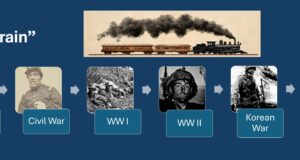Sponsored Content by the First Responder Behavioral Health Institute By: Robert Avsec, Battalion Chief (Ret.), Executive Fire Officer The phrase “cutting edge” comes from the literal idea of a blade’s sharp edge—something at the forefront of action, able to cut through resistance. Its earliest figurative uses date back to the late 19th and early 20th centuries, when the phrase was ...
Read More »Tag Archives: psychology
How do we build a “House of Mental Health Wellness” for Firefighters and EMS Personnel?
By: Robert Avsec, Executive Fire Officer You’re going to have a house built for you. What skilled professionals will you need to build your house? If the house of your dreams is a two-story Colonial-style with a full basement, the list probably looks like this: * Contractor to dig the foundation.* Mason lay the block for the foundation.*Framing carpenters to ...
Read More »The fire service can change but will it regarding post-traumatic stress?
From the battlefields of ancient Greece to modern war zones and fire grounds, society has been on an evolving journey, attempting to grasp the true nature of psychological wounds.
Read More »The Missing Presence: “Nine Sisters” at the 7th Annual Fire Service Psychology Association Conference
By: Robert Avsec, Executive Fire Officer The 7th Annual Conference of the Fire Service Psychology Association (FSPA), held on October 3-4, 2024, in Washington, D.C. was a significant event aimed at bridging the gap between professional psychology and the fire service. However, the absence of the “Nine Sisters” – the major fire service organizations – was a notable and concerning ...
Read More »The Role Industrial/Organizational Psychologists Should have in Fire and EMS Departments
Industrial/organizational psychologists specialize in understanding human behavior within the workplace. They apply psychological principles and research methods to improve various aspects of work environments, including performance, communication, job satisfaction, and safety [1]. Here’s why fire and EMS departments should consider integrating I/O psychologists into their teams.
Read More »What’s in Your Fire Department’s Behavioral Health “Toolbox?”
Fire departments that are looking to provide an effective behavioral health program for their members would do well to model the approach that the fire service has taken with its tiered response to hazardous materials incidents. They would further serve the best interests of their firefighters by collaborating with mental health clinicians, preferably those at the Specialist Level, just as they would if developing their own hazardous materials response team.
Read More »Researchers should not be developing mental health care strategies for firefighters
And that's why we need to have a field of Fire Psychology that's been developed using fire service leaders and mental health practitioners of all "shapes and sizes" if we are to develop and implement better mental health programs for fire service personnel.
Read More »Donate to Help Make the 6th Annual Conference of the Fire Service Psychology Association a Success!
You can help support the 6th Annual Conference of the Fire Service Psychological Association with your tax-deductible donation. Help support improving mental health services for firefighters!
Read More »Eight Steps for Creating an Atmosphere of Psychological Safety in Your Fire Department
Psychological safety is the belief that you won’t be punished or humiliated for speaking up with ideas, questions, concerns, or mistakes. At work, it’s a shared expectation held by members of a team that teammates will not embarrass, reject, or punish them for sharing ideas, taking risks, or soliciting feedback
Read More »Firefighter Suicide: We Don’t Know What We Don’t Know
We must do better in understanding what causes a firefighter to take their own life, and one place we need to start is by gaining a true picture of what leads a firefighter to take their own life. We can only gain that true picture by conducting research in the form of psychological autopsies, that is, using the proven tools and methodologies of psychology.
Read More » Fire & EMS Leader Pro The job of old firefighters is to teach young firefighters how to become old firefighters!
Fire & EMS Leader Pro The job of old firefighters is to teach young firefighters how to become old firefighters!






